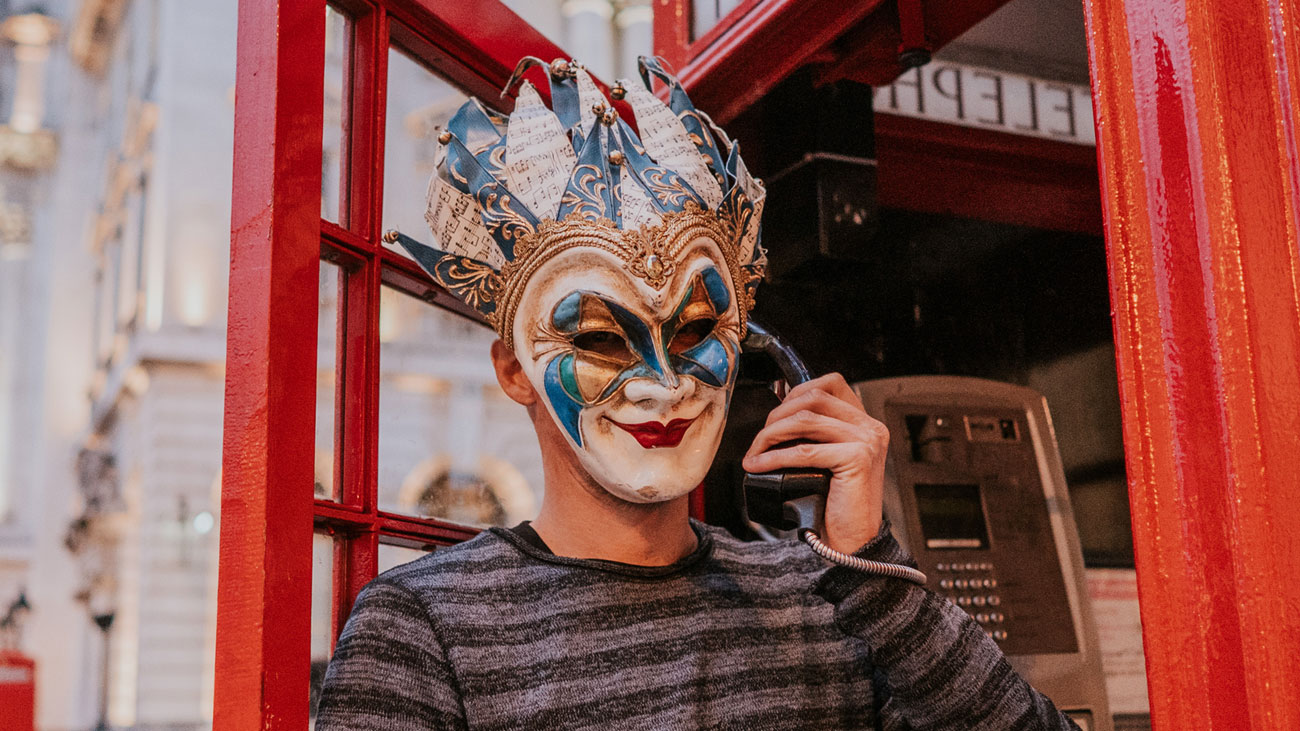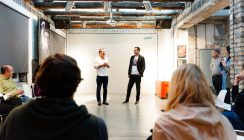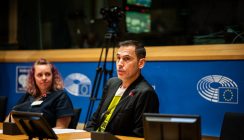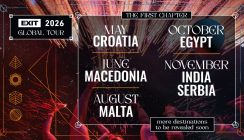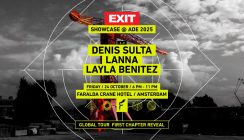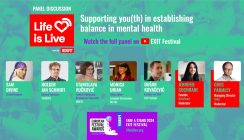During his long and highly successful career, during which he made a name for himself as one of the top acts on the electronic music scene, Brejcha defined his own genre – high-tech minimal techno – and founded his own label Fckin Serious. With a smiling mask, he brings a carnival spirit into his inherently dark sets, so his performances are always a “complete package,” both musically and visually.
In a special interview for EXIT ahead of the festival, Boris Brejcha said that the present is really fcking serious, but that his music brings us an even more serious future. He revealed what success means to him and how he remains “grounded” during marathon tours, but he also emphasised that audiences can expect something new from him at every performance.
You have had one of the most successful careers in electronic music history. At what point did you tell yourself, “You made it, Boris”? Do you ever fear that you will have nothing left to aspire to?
It’s hard to say. I define success as personal success. One person’s milestones are not another’s. I think the most important thing is always to have fun with your work. And for that in I am very grateful that I get to do such a great job that I love and make money doing it. But it’s also important to say that professional success alone doesn’t make you happy. There’s a lot more to it than that. And no, I’m not afraid. I believe that there is always more to be done. I never reach my zenith, and I’m always setting myself new goals and coming up with new ideas.
Have you noticed that there are a bunch of new kids playing music under a mask today? Do you consider them copycats, or do you think they have an actual need to conceal their identities?
Good question, haha. Yes, of course, I noticed that. I think that’s just a natural thing to do. You try to stand out from the crowd of other musicians and DJs and just stand out. Then you reach, for example, for a mask. But unfortunately, this is slowly no longer a speciality. There are many other ways to be noticed.
When you return to a city or a specific festival, how much does it affect your setlist?
Do you feel the pressure to do the same thing that worked the last time, or do you want to give them something they haven’t heard before?
Since I am usually only about once a year in a particular country, the fans there almost always hear a different set. That changes a lot from year to year. Also, the intro is new then. Of course, from show to show, I also orientate myself a bit on what the people like.
We saw your recent concert for Cercle at Arènes de Nîmes. What an impressive stage! Does it get any better than that? I mean… Wow! Did you feel like a modern-day gladiator?
That was really impressive! My legs were really shaking when I ran into the arena like a gladiator, haha. Just crazy, really! That was an extraordinary evening, and I’m delighted that the video is so well received!
“High-tech minimal” is the name of the genre in which you’ve classified your music. Are there some artists you have heard of and think they can use that term too? Who is on your radar these days, regardless of the genre?
That’s a tough question. I don’t want to exclude anyone, of course. But since everyone has their own personal style, it’s hard to classify someone. I created the term so my personal music can be classified—as my personal style.
But yes, there are many talented young artists who have a lot going for them. My new label member Moritz Hofbauer, for example, is one of them. You should definitely listen to him!
You claim that “The Future will be Fckng Serious”, but with everything in mind… don’t you think the present is Fckng Serious?
Yes, that’s right. That definitely. But so is the future.
When did you make “Never Stop Dancing”? It seems like an appropriate message and a little nudge that people need nowadays.
Yes, that’s right. The song was written during our lockdown here in Germany. It’s a little message. You should never lose faith, never forget to have fun and never stop dancing.
You travel an awful lot. Do you have something that represents “home” to you that you maybe bring on all of your travels? How do you centre yourself? Do you have any special rituals that you turn to on tour?
No, honestly not. My photographer Felix is always with me, which gives me a lot of serenity and consistency. I’m also always very happy when my girlfriend accompanies me, even then I feel more at home. But unfortunately, that doesn’t always work. I usually try to eat well and sleep a lot, not to go crazy, haha. Sometimes it’s intense but all in all I also really like to travel. But: the most beautiful it is simply at home, and I am very happy every time I come home.
With the success you have, the recognizability factor, the insane streaming numbers, and crazy ticket sales… do you ever consider yourself a pop star?
No, haha. I understand what you mean, and I realise more and more often that many people know me when I’m on the street, but I think you just don’t perceive yourself that way. I have normal friends, go shopping at home and drive a car like everyone else.
Sometimes I even have moments when I am still shocked at how many people know me and my music.
Try not to cheat, don’t use your phone or ask your agent… Do you know how many singles you released?
Wow, that’s tough. Including all albums, singles, EPs and remixes, I guess it’s a little more than 40. I like to produce fast and a lot. Mostly more than I can even release in the meantime. So, the chances are good that there will be more to come.
We know you don’t like listening to electronic music at home, but do you experiment with different types of music besides the stuff you release under the name Boris Brejcha? Is there an alter ego in the works, perhaps?
No, currently not. Sometimes I try around a bit and test different styles. But that always goes in the electronic direction. That there is something entirely out of line, for example, a rock song or so, does not really happen.
In one of your blog posts a few years ago, you wrote, “Serbians definitely know how to party!”. Can you really feel the difference with the crowds? How would you describe the crowds at EXIT?
Yes, every country has its temperament. Of course, this can also be felt on stage. I always enjoy playing at the EXIT Festival, especially at sunrise. I’m already looking forward to this year!
You have so many loyal fans, and they love you so much. Looking from the outside in, it seems almost the same sometimes. How can you tell if the crowd is really into what you’re giving?
A good question, but I think as an artist, you realise that. You feel it somehow, and of course, you see it. You notice if and how much and how hard people dance. You also hear the shouts or see how the crowd interacts; you also feel the emotions. This is really exciting every time.
Thank you so much for your time. See you soon at the Petrovaradin Fortress!
Thank you so much!
By: Vojkan Bećir
